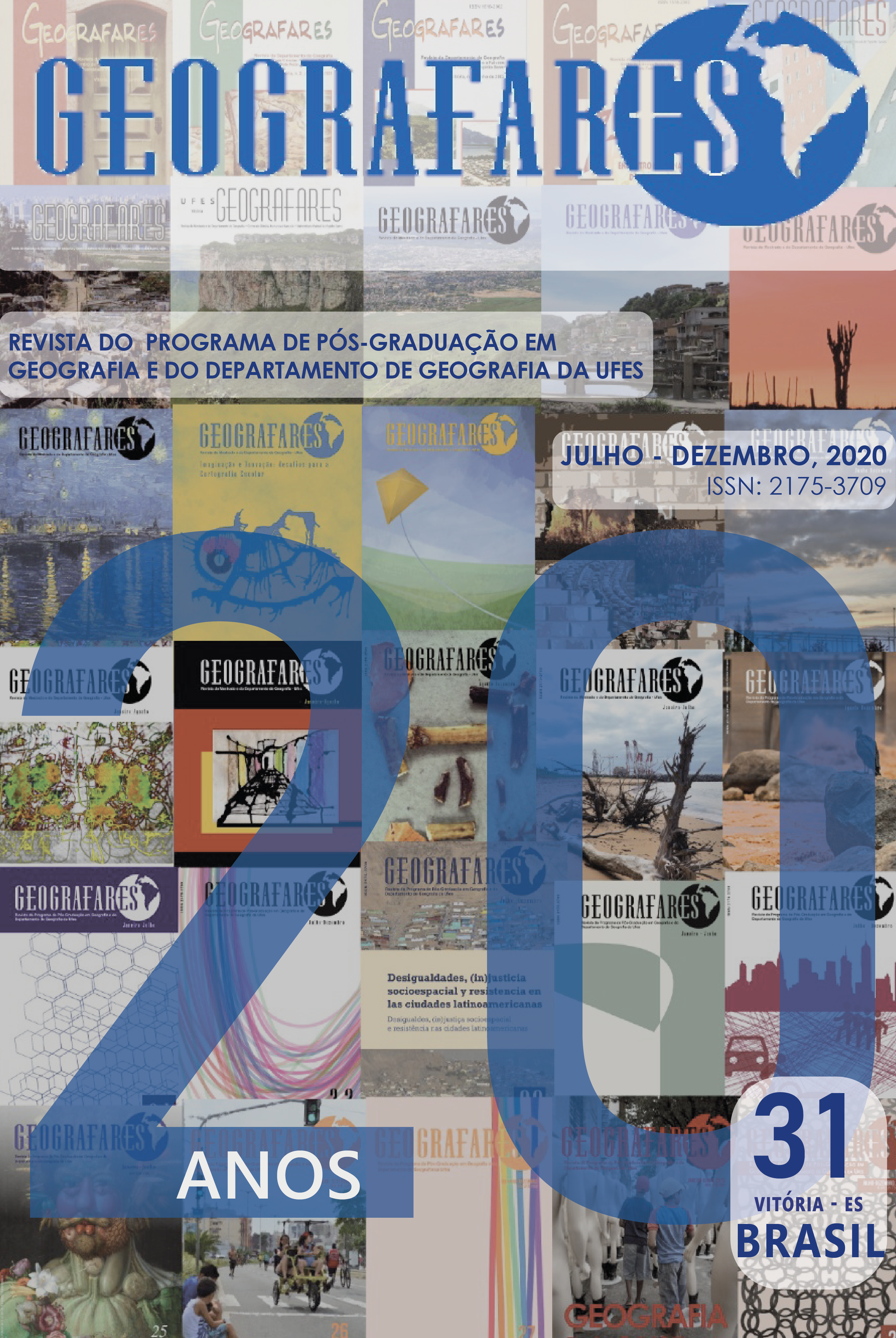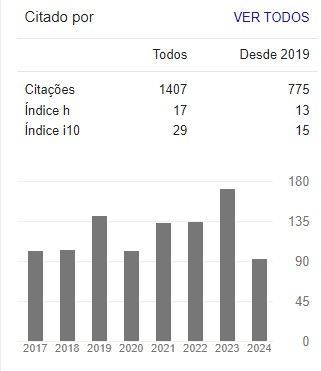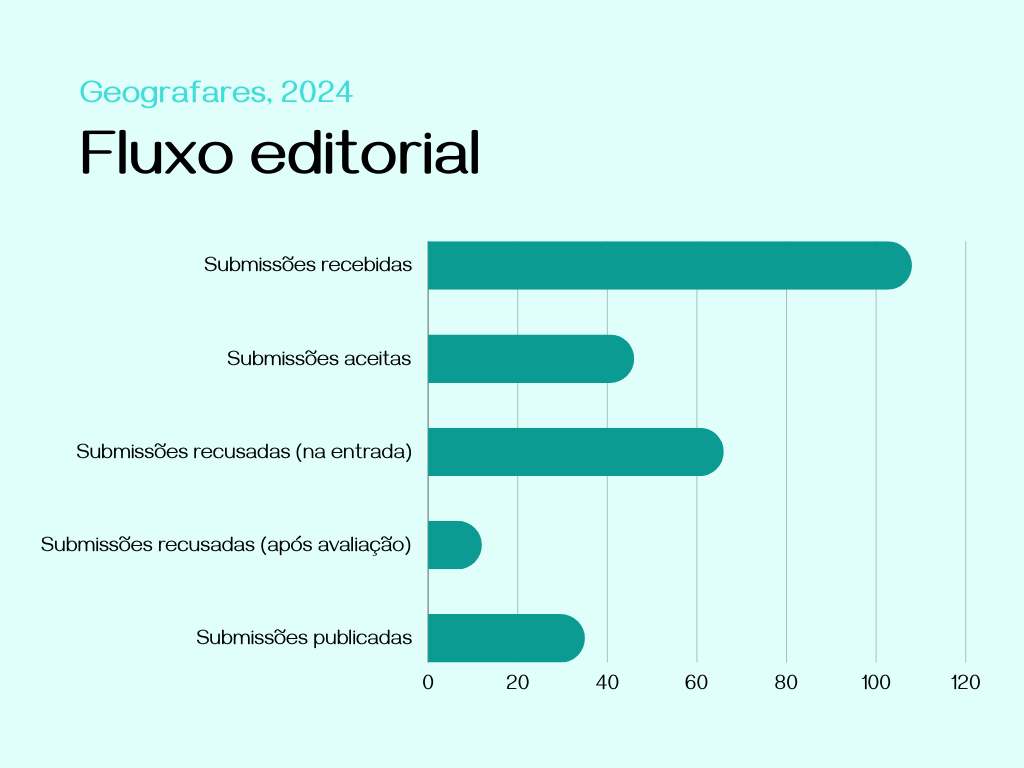Complexity of the well living.
Weighting based on the notions of quality of life, health, well-being, happiness and sustainability
DOI:
https://doi.org/10.7147/geo.v1i31.30883Keywords:
Needs, Values, Multidimensionality of lifeAbstract
The purpose of this article is to analyze the notions of quality of life, well-being, happiness, health and sustainability to identify the associations between them. Therefore, they are discussed in a theoretical-conceptual way, as well as seeks to contextualize them empirically, in an objective and subjective way, in Uberlândia-MG. To achieve the goal, a bibliographic review is combined with analysis of primary and secondary datas. It is pointed out that despite the intrinsic relations and some overlaps between such notions, they differ. Sustainability presupposes a collective understanding, and, like health, it is fundamental in the objective dimension, but not only on that, conserning its strong interrelation with the quality of life. For happiness and quality of life, the dimension stands out, which presupposes understanding from the individual scale
Downloads
References
BATISTELLA, C. Abordagens contemporâneas do conceito de saúde. In: Fonseca, Angélica Ferreira (Org.) O território e o processo saúde-doença. Rio de Janeiro: EPSJV/Fiocruz, 2007, p.51 a 86.
BERGER-SCHMITT, R.; NOLL, H.-H.. Conceptual Framework and Structure of a European System of Social Indicators. UE Reporting Working Paper, n. 9, Mannheim: Centre for Survey Research and Methodology (ZUMA). 2000.
BERRY, B. J. L.; BAKER A. M. Amostragem Geográfica (Geographic Sampling in Spatial Analysis, In: Statistical Geography, Prentice Hall, Inc., Englewood Cliffs, New Jersey, 1968. p. 91-100.
BOOZ-ALLEN PUBLIC ADMISTRATION SERVICES. The Quality of Life Concept: A Potential New Tool for Decision-Makers. Environmental Protection Agency, Washington, 1973. In: Social Indicators Research, JOHNSON D. L. (Review). v.1, n.3, p. 383-385, dec,1974.
BRASIL. Ministério da Saúde. Secretaria de Vigilância em Saúde. Política nacional de promoção da saúde / Ministério da Saúde, Secretaria de Atenção à Saúde. – Brasília: Ministério da Saúde, 2014.60 p. Série B. Textos Básicos de Saúde.
COMISSÃO EUROPEIA. Relatório cidades europeias sustentáveis. Grupo de Peritos sobre o Ambiente Urbano. Ambiente, Segurança Nuclear e Protecção Civil. Bruxelas, Mar. 1996.
CROCKER, D. Qualidade de Vida e Desenvolvimento: o enfoque normativo de Sen e Nussbaun. Lua Nova, São Paulo, n.31, p.99-133, 1993.
DODGE, R.et al. The challenge of defining wellbeing. International Journal of Wellbeing, v.2, n.3, p. 222-235, 2012.
FAHEY, T., et al. Monitoring quality of life in Europe. European Foundation for the Improvement of Living and Working Conditions. Luxembourg: Office for Official Publications of the European Communities, 2003.
FELCE, D.; PERRY, J. Quality of Life: Its Definition and Measurement. Research in Developmental Disabilities, v. 16, n.1, p. 51-74, 1995.
FENERI, A. M.; VAGIONA, D.; KARANIKOLAS, N. Measuring Quality of Life (QOL) in Urban Environment: An Integrated Approach. In: 13th International Conference on Environmental Science and Technology, CEST 2013, Athens, 5-7 September 2013.
HARDI, P.; PINTÉR L. Models and Methods of Measuring Sustainable Development Performance. Revised draft discussion paper prepared for the sustainable development coordination unit, executive council, government of Manitoba. International Institute for Sustainable Development Winnipeg, Manitoba Canada. 1995. Disponível em: <https://www.iisd.org/sites/default/files/pdf/measure_models_methods_sd.pdf. >. Acesso em: 24 mai. 2014.
HERCULANO, S. C. A qualidade de vida e seus indicadores. Ambiente e Sociedade. Ano I, n. 2, p 77 –99, 1998.
KAHNEMAN, D. et al. A survey method for characterizing daily life experience: The day reconstruction method. Science, v.306, v.5702, p.1776–1780, 2004.
KAMP, I. V; LEIDELMEIJER, G. M.; HOLLANDER, A. Urban environmental quality and human well-being: towards a conceptual framework and demarcation of concepts; a literature study. Landescape and Urban Planning, v.65, n.1, p. 5-18, 2003
LAMBIRI, D., et al. Quality of life in the economic and urban economic literature. Social Indicators Research, v.84, n.1, p. 1-25, 2006.
LORA, E. Calidad de vida más allá de los hechos., LORA, E. (org.). Banco Interamericano de Desarrollo: Fondo de Cultura Econômica, 2008.
MARANS, R. W.; STIMSON, R. J. Investigating Quality of Urban Life: Theory, Methods, and Empirical Research. Social Indicators Research Series, v. 45. Springer Dordrecht, Heidelberg, London, New York, 2011.
MCCREA, R. Urban quality of life: Linking objective dimensions and subjective evaluations of the urban environment. Unpublished PhD thesis, The University of Queensland, Brisbane. 2007.
MINAYO, M. C. S. Qualidade de vida e saúde como valor existencial. Ciência & Saúde Coletiva. v. 18, n. 7, p. 1868, 2013.
MINAYO, M. C. S.; HARTZ, Z. M. A. & BUSS, P. M. Qualidade de vida e saúde: um debate necessário. Ciência & Saúde Coletiva, v.5, n.1, p.7-18, 2000.
MORIN, E.; CIURANA, E. R.; MOTTA, R. D. Educar na era planetária: o pensamento complexo como método de aprendizagem pelo erro e incerteza humana. São Paulo: Cortez; Brasília, DF: UNESCO, 2007.
MRIDHA, A. M. M. H.; MOORE, G. T. The Quality of Life in Dhaka, Bangladesh: Neighborhood Quality as a Major Component of Residential Satisfaction. In: MARANS, R. W.; STIMSON, R. J. (Ed). Investigating Quality of Urban Life: Theory, Methods, and Empirical Research. Social Indicators Research Series,v.45. Springer Dordrecht, Heidelberg, London, New York, 2011. p. 251-272.
MONKEN, M.; BARCELLOS, C. Vigilância em saúde e território utilizado: perspectivas teóricas. Cadernos de Saúde Pública, v. 21. n.3, p. 898-906, maio.-jun, 2005.
NOGUEIRA, V. M. R. Bem-Estar, Bem-Estar Social ou Qualidade de Vida: a reconstrução de um Conceito. Semina: Ciências Humanas e Sociais, Londrina, v. 23, p. 107-122, set. 2002.
OECD. Organisation for Economic Co-operation and Development .Guidelines on Measuring SubjectiveWell-being. 2013. Disponível em: <http://dx.doi.org/10.1787/9789264191655-en>Acesso em: 20 jan. 2014.
PARTIDÁRIO, M. do R. Indicadores de Qualidade de Ambiente Urbano. Lisboa, Direcção Geral de Ordenamento do Território e Desenvolvimento Urbano, Colecção Estudos 4, 2000, 155 p.
PAIS-RIBEIRO, J. A importância da qualidade de vida para a psicologia da saúde. In: CRUZ, J.P., et al. (Coords.). Bem-Estar e Qualidade de vida. Alcochete: Textiverso, 2009, p.31-49.
RIGHETTI, S. Condições ambientais e bem estar social são fatores que influenciam saúde da população. Cienc. Cult. v.56, n.2, p. 06-07, 2004.
RUTLEDGE, R. B.; et al. A computational and neural model of momentary subjective well-being. University of Cambridge, Cambridge, United Kingdom, Proceedings of the National Academy of Sciences-PNAS, v. 111, n. 33, p.12252–12257, August 19, 2014. Disponível em:<http://www.pnas.org/content/111/33/12252.full>. Acesso em: 20 mai. 2015.
SABROZA, P. C. Concepções de Saúde e Doença. Rio de Janeiro: EAD, Ensp, 2001. (Texto de Apoio ao módulo I do Curso de Especialização em Gestão de Sistemas e Serviços de Saúde).
SEN, A. O desenvolvimento como expansão de capacidades. Lua Nova no.28-29 São Paulo Abr. 1993.
STIGLITZ, J. E.; SEN, A; FITOUSSI, J-P. Mis-measuring our lives: why GDP doesn’t add up. New York: The New Press, 2010.
STIMSON, R., et al. The Brisbane-South East Queensland Region, Australia: Subjective Assessment of Quality of Urban Life and Changes over Time. In: MARANS, R. W.; STIMSON, R. J. (Ed). Investigating Quality of Urban Life: Theory, Methods, and Empirical Research. Social Indicators Research Series, v.45. Springer Dordrecht, Heidelberg, London, New York, 2011, p.185-208.
UN- United Nations. Inequality of what? Inequality between whom? Humanity Divided: Confronting Inequality in Developing Countries, 2013, 40p. Disponível em: <http://www.undp.org/content/dam/undp/library/Poverty%20Reduction/Inclusive%20development/Humanity%20Divided/HumanityDivided_Ch1_low.pdf>. Acesso em: 14 fev. 2014.
WHO. World Health Organization. Constitution of the World Health Organization. 1946. Disponível em: < https://www.who.int/governance/eb/who_constitution_en.pdf >. Acesso em: 17 mai. 2020.
______ WHOQOL Group. Development of the WHOQOL: Rationale and current Status. In Int. J. Ment. Health. v. 23, n.3, p.24-56, 1994.
______. The WHOQOL Group. The World Health Organization Quality of Life assessment (WHOQOL): position paper from the World Health Organization. Soc Sci Med. v.41, n.10, p.1403-9, 1995.
_____. Regional Office for Europe. Measurement of and target- setting for well-being: an initiative by the WHO Regional Office for Europe, 2012.
_____.The European health report 2015: Targets and beyond – reaching new frontiers in evidence. Disponível em: < http://www.euro.who.int/en/data-and-evidence/european-health-report/european-health-report-2015>. Acesso em: 15 nov. 2015.
Downloads
Published
How to Cite
Issue
Section
License
Copyrights Declaration
Authors who publish in the journal agree with the following terms:
- Authors will keep their copyrights and grant the journal the right to their first publishing, simultaneously licenced under Creative Commons Attribution License which allows sharing their work with authorship recognition and initial release through this journal.
- Authors may sign additional contracts separately diffusing a non-exclusively version of the paper published in this journal (i.g. publishing in institutional repository or as a book chapter), once citing the authorship and initial release through this journal.
- Authors are encouraged to publicize and diffuse their paper online, for example onto institutional repositories or on their personal websites.



























